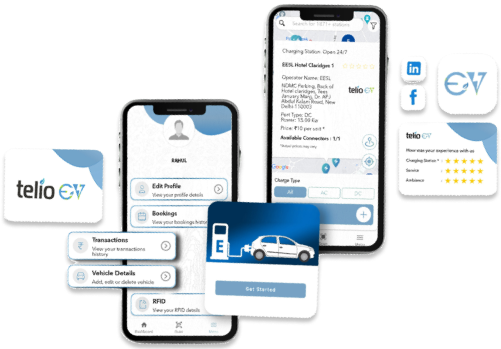The Most Spoken Article on EV Charging Management Software
The Most Spoken Article on EV Charging Management Software
Blog Article
Enhancing Electric Vehicle Charging with Advanced Management Software

The rapid adoption of electric vehicles (EVs) has required the advancement of effective and easy to use charging solutions. Central to this evolution are Electric Vehicle Charging Management Software (EV CMS) and EV Charging Apps, which streamline the charging procedure for both operators and users.
Comprehending EV Charging Management Software
EV Charging Management Software acts as a thorough platform that makes it possible for Charge Point Operators (CPOs) and other stakeholders to monitor, manage, and optimize EV charging stations. Key functionalities consist of real-time monitoring of charging stations, user authentication, payment processing, and energy management. By integrating these features, the software makes sure effective operation and improves the user experience.
Key Features of EV Charging Management Software
1. Real-Time Monitoring and Control: Operators can oversee the status of charging stations, track energy consumption, and address concerns immediately.
2. User Authentication and Access Control: The software manages user access, ensuring that only authorized individuals can make use of the charging centers.
3. Payment Processing: It facilitates smooth deals, supporting different payment methods to deal with varied user preferences.
4. Energy Management: By optimizing energy circulation, the software minimizes operational expenses and supports grid stability.
5. Reporting and Analytics: Comprehensive information analysis aids in notified Charging Station Management Software decision-making and strategic planning for network growth.
The Role of EV Charging Apps
EV Charging Apps are developed to supply EV owners with practical access to charging infrastructure. These applications use features such as locating neighboring charging stations, real-time availability updates, navigation help, and remote monitoring of charging sessions. By enhancing availability and user engagement, these apps play an essential function in promoting the adoption of electric vehicles.
Combination with Open Charge Point Interface (OCPI)
The Open Charge Point Interface (OCPI) is a standardized protocol that helps with interoperability between various EV charging networks. Integration with OCPI enables seamless roaming, making it possible for users to access numerous charging networks with a single account. This interoperability enhances user benefit and expands the ease of access of charging facilities.
Benefits of Implementing Advanced Charging Solutions
- Enhanced User Experience: User-friendly user interfaces and reputable services increase customer complete satisfaction and commitment.
- Operational Efficiency: Automation and real-time monitoring lower manual intervention, lowering functional costs.
- Scalability: Advanced software solutions support the expansion of charging networks to fulfill growing demand.
- Revenue Generation: Flexible rates models and efficient payment processing open new revenue streams for operators.
Conclusion
The combination of EV Charging Management Software and user-centric EV Charging Apps is pivotal beforehand the electric vehicle ecosystem. These innovations not just improve operations for service providers however likewise considerably boost the charging experience for users. As the EV market continues to grow, the adoption of such advanced solutions will contribute in fulfilling the increasing demand for efficient and available charging infrastructure. Report this page